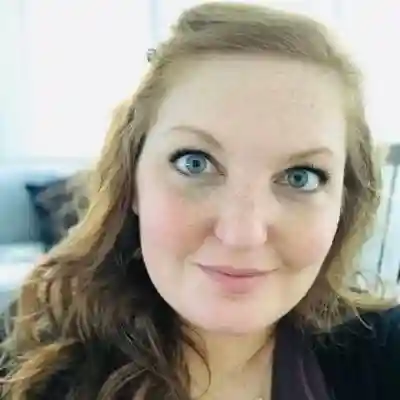Note: this transcript has been lightly edited for clarity.
I wanted to touch on some of the wisdom's I'm getting in terms of what seems to be trending right now in the marketplace. Throughout my career working with romance and romance writers, I've seen some of the top things that really make a romance stand out, and unfortunately some of the things that are common pitfalls that romance writers can encounter. They can otherwise sort of mark what could be a really great romance.
Trending subgenres
What I see right now hearing from different editors that are trending, obviously are small-town contemporaries. RaeAnne Thayne is a name that should be familiar to many of you. There's a host of women like Debbie Mason, Nancy Robards Thompson, Jill Shalvis, Tara Taylor Quinn. All of them are bringing the heart and soul of a small town community to readers. Where it's about finding your own family among a group of strangers — they really have a wonderful charm to them.
Cowboys still remain very popular. Certainly, at my time at Harlequin, Diana Palmer was a beloved name, and I know I've heard Carolyn Brown is another western romance writer to watch.
Amish is another area that continues to hold appeal. When I was at Harlequin, I had the pleasure of working with Marta Perry, who has just really built a name for herself in the Amish romance market. I see she has something called, The Wedding Quilt, coming out that deals with sort of the reunion romances, second chances, all in this sort of closed Amish community.
Then rom-com is something wonderful that's happening now in the marketplace. Some of you may have remembered that back in the 80s and 80s, they were hugely popular. There were some wonderful movies like When Harry Met Sally and You've Got Mail with that wonderful wit, flirtiness, and slow-burn. Writers like Jasmine Guillory with The Wedding Date and Helen Hoang with The Kiss Quotient are bringing that genre back — and it's really appealing to a younger readership, which is wonderful.
The romance market has been very invested in realizing that we need to find writers of more diversity with their own voices, so that's another area that's really wonderful to see that trending now so much.
I'm a big romantic suspense fan. I love nothing more than reading about Navy Seals, or a group of medics on larger-than-life rescues, teams of canine units. Those type of books have limited appeal right now, but there's certainly a market for them.
What's not trending?
Right now, it seems like there's limited appetite for historicals, that's a subgenre I personally really, really love. I had the pleasure of working with Courtney Milan and Julia London. Unfortunately, that's a more limited market, and it may be a little harder to find that broad commercial appeal. That said, I do hear that there is an appetite for some Regencies, Victorians, and Scottish Highlander-type romances.
As for Paranormal Romance... when I first joined Harlequin as a very young new editor, I learned that paranormals (vampire and werewolf-type books) were not trending in the marketplace, but during my time at Harlequin, they did make a comeback. Right now, I'm not sensing as much appetite for them but as anyone in publishing will always say: all it takes is one person to start the curve.
Making your romance stand out with tropes
If you're working in a subgenre, make sure they're not just delivering the basic minimum. It's not enough that it's a western, and your protagonists meet in a wonderful premise and that's it. You can dig deeper to find a good hook. For example:
The reunion romance
That's where the protagonists might have known each other when they were in school together, and something happened, they got separated, now she's returned to the small town, and they're going to recognize that they still have feelings for each other. How are they going to get past the issues that separated them in the past?
Those still have tremendous appeal.
A second chance at love
It's where you may have had a first love, but something happened. Maybe you were an early widow or divorced, or someone betrayed your trust. But now, you've suddenly been given this wonderful second chance at love. That's one aspect I think that makes romances so appealing to people: a second chance at love certainly delivers such a hopeful message.
Millionaires and billionaires
Who doesn't want to be whisked away to this wonderful world? Although in these stories, I'm hearing that a lot of people now want to see the heroine being the one who "has it all" and now looking for an opportunity to find love with a hero — and not so much the hero saving the heroine as it once was.
Large families sagas
These continue to have tremendous appeal. Certainly, when I was at Harlequin, some of the beloved continuities were things like the Fortunes of Texas and The Coltons which followed various families over the years — and even generations when the series was popular. They give the reader that real sense of connection and belonging that might be missing from their own life. Again, a message of hope.
Other tropes
- 'Friends to lovers' with that slow-burn is something we really see nicely in the rom-coms.
- 'Enemies to lovers', indeed is another trope with the genre.
- The pretend engagement, where for some reason, the hero and heroine need to masquerade as an engaged couple, that's remained.
Harder tropes to pull off
Some tropes are harder to execute. The love triangle, for example, is very hard as you have that extra character who is tough to feel satisfied for. The reader sees someone who's lost out in love which can make the ending bittersweet. Even if you're planning your next book around that jilted bachelor or bachelorette, it can still be hard not to see them win at love.
Another one I think that might be harder right now to execute is the alpha male, and boss. You need to make sure that the situations you set up will appeal to modern sensibilities.
What readers want
A big thing that draws the romance reader in is 'the promise' that you're giving them an escape read. They know how your story's going to end, but they want to see how you hit those hallmarks:
- They're looking for something that's uplifting.
- They want to have a happy ending.
We all know the hero and heroine are going to be together at the end. The challenge is how you're going to overcome these horrible emotional conflicts that usually stem from issues of trust or loss — to help the protagonist find their love, together.
Throughout, you're certainly going to use a level of sensuality that seems appropriate to the story, but not gratuitous. It needs to feel integral to the plotting, and as I say, sort of organic.
A sense of place
I love to be transported. When I'm thinking of those small-town books, I want all the trappings that come with it: from Fourth of July parades to the stores with window boxes to the neighbor who leaves you some homemade item because you were sick or something. That sense of caring, warmth, and belonging that maybe you haven't felt before. But now, in this town, they embrace you with open arms.
You can get that with an urban setting, like in an apartment building, for example. If you built up a close connection among the different residents within the apartment building, you might be able to achieve that same feeling.
Characterization
This is another huge area. You're looking for two things: a character that your readers are going to empathize and sympathize with. I remember some of the very, very early romances I edited had a catfight between two women, and that was just a case where obviously you weren't going to find the heroine very appealing.
We're going way back, but do you remember the scene from Dynasty where the women pushed each other into the pond? I mean, obviously behavior like that is how you can undermine your protagonist.
No one's expecting your character to be perfect, but your flawed characters are that way for a reason. Maybe the bitter hero has been burned by love. Perhaps he's a widower, trying to raise a child alone. He lost the wife he loved, and now he's sort of sworn off anybody. Perhaps he's on the ranch alone because the woman he loved left him because she didn't like the small town life — and now he's wary of finding love. That's fine, I think as long as you set it out that he'll be sympathetic. Give that character a very rich backstory, so that you'll have plenty of information to mind on why they are going to be reluctant to love.
Conflict
You want to have a well-realized emotional conflict. When I first started out, someone told me that this usually revolves around an issue of trust, or loss. You're going to make your character face their greatest fear — something that brought them the most emotional heartache — and then make them willing to believe in the promise of love; to put their heart on the line again to be with a person.
That's a big takeaway for romance readers: how much of conflict you're going to set up and how much of a hurdle they're going to have to overcome. What happens if that emotional conflict isn't as strong as it can be?
Very often, about midway through they both say, “I love you,” to each other and the reader's sort of got what they wanted out of the book — then you may still have what we call "an external conflict" going on. That could be someone stalking the heroine, or the case of the mysterious break-ins across the town. Those can all be very external and don't require as much emotional growth on the part of your characters. And that's what romances are so often about: the emotional growth of people willing to believe in this promise of love.
Top Five Pitfalls
1. Not researching the market
I would say one of the things that you can do to help yourself the most is research the market. The wonderful saying about the romance genre is that most of the writers are readers, as well. I'm sure you all recognize what brought you to the genre, and who you like, and whose writing you would like to emulate, obviously, adding your own distinctive twist to it.
I'm constantly checking Amazon to see what sort of book is popping up and what's really appealing. When you're researching the market, don't jump t the conclusion that just because something was popular in 2010, it'll be trending now — because that genre and the way they were writing may have fallen out of favor. Look at the most current titles to see what's appealing to readers. Gt the best sense of where your book could fit on the shelf next to theirs.
2. Not creating an original opening
Here are two opening scenes that I think we've all seen unfortunately an awful lot of.
The heroine is driving into town. She arrives with her secret son and the first person she runs into is her former boyfriend, who's now the small-town sheriff. And, of course, they're at the local diner.
It's a wonderful premise, do not get me wrong. Readers love it, but it's an example of something that requires you to bring even more to the table to make it your own. We've all unfortunately seen the protagonist in cars, driving into the town, and sort of rehashing why they're coming back to this small town. I would just be aware of that as you're writing.
The other thing is obviously people brought together by a funeral. Again, a wonderful hook but something I've seen an awful lot.
But... one of the things I've learned over my career in publishing is "never say never to anything," because the minute you say that, you'll see something that's absolutely wonderful.
3. Don't info-dump in early chapters
That's where the heroine pretty much tells us what's in her synopsis of why she left this town or left this hero, or why she hasn't been able to find love. Then, we switch to the hero and learn his story.
The problem is that it really takes the reader out of the story. Not only are you providing an awful lot of narrative detail, but it's also just distancing you from the character and slowing down your pacing.
Many of us write synopses before we write the book. Sometimes I think it can happen where you tend to dump in almost like a paragraph or two from your synopsis, and again, take the reader out of your story.
4. Be aware
You want to keep the fantasy for readers, but also be aware of movements like Me Too and Own Voices. Be very sensitive to that; create characters that are going to be sympathetic to readers, ones that you're going to want to be around, emulate, admire, and fall in love with.
5. Don't let your sidekicks get out of hand
Avery common problem I've seen over my years in romance is having the secondary characters be too pervasive in your story.
I think that's a real tendency among debut as well as experienced writers: you're trying to set up the next story, but it's a case of knowing when you've introduced enough detail about the secondary character to get the reader interested. But you run the risk of making them more interesting than your own hero and heroine.
As I mentioned earlier with a love triangle, maybe you're trying to set up the jilted bride for the next story, but again you want to be fulfilling the promise to the reader, that for the romance you're sending them right now. You're also going to, obviously, deliver on that promise of happily ever after to a reader, to again give them that sense of hope and escape.
Please leave your questions and comments in the box below.





